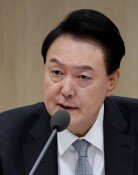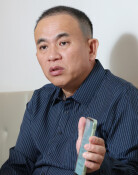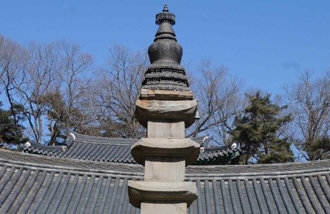Universities Should Respond to Demands of the Industry
Universities Should Respond to Demands of the Industry
Posted September. 29, 2006 07:05,
Dr. Park: Korean universities are aware of the need to change but cannot identify their direction.
Dr. Oike: The role of universities in Japan is also changing drastically. Until the 1980s, industries trained their employees on the job and developed their technology. Today the university is charged with this duty. Colleges should actively reflect societal needs through its knowledge.
Dr. Rauhut: As in the globalization of the economy, universities should also allow students to study a variety of subjects together. To do so, there should be a system in which professors can cooperate in previously different areas such as the combination of biophysics and biochemistry.
Dr. Chiu: The curriculum should be changed. When I was a student, a physicist only needed to study physics. Now they have to study chemistry and bioengineering as well. The Chinese government also expects universities to contribute to the society and the economy in practical terms.
Park: Your universities are each noted to have a unique academic tradition, earning the respect of other institutions. What is the reason for this success?
Rauhut: Professors should lead open cooperation with the industry. The German company Siemens linked with four universities in order to create a knowledge exchange center. Its especially important that professors of engineering are given opportunities to work directly in the industry. After acquiring a doctorate degree they should work for five to fifteen years in the industry and return to academics. This experience would allow them to know what the industry needs. University labs should also be upgraded to the level of industrial research institutes. In Aachen University of Technology one research facility contains approximately 500 researchers and technicians.
Oike: Kyoto University produced five Nobel laureates. This prize is at the summit of prizes, but without the base there would be no summit. That is the importance of establishing the basis of academics. The driving force behind Kyoto Universitys research and education is in its sturdy basis. Added to this our tradition of freedom of academics is an important value that is to be kept despite any changes.
Chiu: Our university is the only institution in China to be under the Chinese Academy of Sciences, and has developed as the largest research-oriented university. There are about 8,000 students in the undergraduate level, with 10,000 graduate students. Two years ago we established an advanced research institute in Shanghai, Chinas largest economic center. Headed by graduate students of the University of Science and Technology of China, we are focusing on bioengineering.
Park: Korean universities are less efficient in developing human resources when considering the amount of investment in education. How may collegiate education be improved in its efficiency?
Oike: With its 109 years of history, Kyoto University continues to cooperate closely with the industry. For instance in 1901, when Shimadzu developed the X-ray machine the cooperation with Kyoto University was essential. Kyoto Universitys tradition was possible through the link between the academia and the industry. Academic-industry cooperation is also a good stimulant for the students.
Rauhut: The key is to reflect the request of the industry, who are the consumers of education. Because this is directly related to their future career, this point is also important for students and their parents. To cultivate science and engineering students as leaders as well as engineers would be the responsibility of the university. The CEO of the automobile company Porsche is from our university. The fame of our graduates would be reflected to their juniors. Aachen University of Technology focuses on science and engineering, but recently we are also strengthening education on journalism and broadcast.
Park: Universities alike ponder on how to acquire adequate human resources. Please recommend some possible programs for Korea.
Rauhut: Talented high school students should be selected to attend lectures in the university, and professors can visit high schools and conduct experiments and thus attract students. The Internet can be used to identify the interests of high school students.
Oike: We are encouraging the OCW (Open Course Ware) in order to activate a variety of information exchange of schools. Like Aachen University of Technology, we are conducting the Junior Campus where middle and high school students are invited to attend research or lecture sessions. At the graduate level we are actively utilizing a program that allows students to accrue experience and knowledge in the workplace.
boriam@donga.com
Headline News
- N. Korea conducts ICBM test ahead of U.S. presidential election
- Samsung Electronics to expand 5th Gen HBM Sales in Q4
- Gov’t flags possible tax evasion among pension exemption applicants
- Draft of U.S.-brokered 60-day truce between Israel and Hezbollah leaked
- Half of working seniors earn less than 1 million won per month







